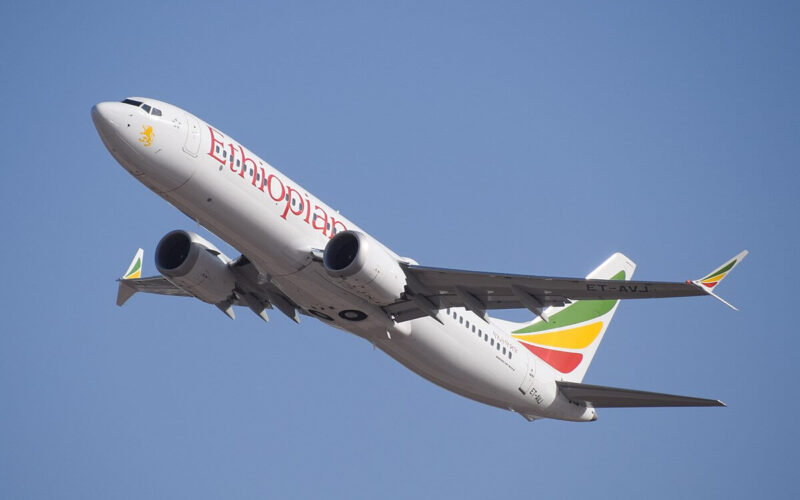Ethiopian Airlines CEO claims the airline “believes in Boeing” and pledges to work together to advance aviation safety. However, in the light of ET302 crash it appears that even if the carrier still believes in Boeing, it might not feel the same about its MAX planes. Here is why.
In relation to an ongoing investigation into Ethiopian Airlines flight ET302 crash, the airline group CEO Tewolde GebreMariam has released a statement, reassuring positive relationship with Boeing and claiming his airline “believes” in the planemaker. The proclamation comes days after Ethiopian Airlines were refuting public doubts of its safety procedures, and did that by pointing out into world-wide groundings of Boeing 737 MAX jets.
Prologue: MAX jets are still grounded!
On March 22, 2019, Ethiopian Airlines has released a statement in which it addresses the ET302 crash investigation. While authorities have not yet determined true causes of the accident, the carrier pointed out to consequences Boeing is already dealing with. “[…] the entire world knows all B-737 MAX airplanes have been grounded since the tragic accident of ET 302/10 March. About 380 B-737 MAX airplanes are grounded all over the world including in the USA. All concerned regulators, Safety oversight authorities and other law enforcement agencies are conducting serious investigation on the design and certification of the B-737 MAX airplanes and we are waiting patiently for the result of these investigations,” the statement reads.
The reason why Ethiopian Airlines has chosen to remind global MAX groundings is related to the fact that its own safety practises were being questioned. One day earlier, the Washington Post has published an article in which it refers to two pilot complaints from 2015 alleging safety shortcomings at the airline (Boeing MAX jets were not in use at the time). In particular, the complaints revolve around Ethiopian Airlines’ allegedly “poor pilot training processes, potentially dangerous policies with respect to crew flight and rest time, and a failure to include updated pilot checklists for certain “non-normal” flight conditions,” as described in the article. Both complains were found in the U.S. Federal Aviation Administration’s database and closed promptly.
So, in their March 22 statement, Ethiopian Airlines calls allegations “baseless and factually incorrect”, adding that “[they] are false defamations without any evidence, collected from unknown and unreliable sources and meant to divert attention from the global grounding of the B-737 MAX airplanes”.
GebreMariam: we see future with Boeing
Three days later, on March 25, the carrier has issued another statement, this time attributed to the group’s CEO. “Let me be clear: Ethiopian Airlines believes in Boeing,” GebreMariam writes.
“They have been a partner of ours for many years,” the statement goes on. “More than two-thirds of our fleet is Boeing. We were the first African airline to fly the 767, 757, 777-200LR, and we were the second nation in the world (after Japan) to take delivery of the 787 Dreamliner. Less than a month ago, we took delivery of yet another new two 737 cargo planes (a different version from the one that crashed). The plane that crashed was less than five months old. Despite the tragedy, Boeing and Ethiopian Airlines will continue to be linked well into the future”.
Nevertheless, the declared trust in the manufacturer appears to be shaken by the crash. In an interview given hours after ET302 went down, the airline executives dismissed possibility to ground their remaining MAX jets. Fast forward some hours and Ethiopian Airlines did the exact opposite: grounded their four MAX 8s.
“Immediately after the crash and owing to the similarity with the Lion Air Accident, we grounded our fleet of Max 8s,” GebreMariam notes in the statement. “Within days, the plane had been grounded around the world. I fully support this. Until we have answers, putting one more life at risk is too much”.
Ethiopian’s boss insists that their MAX pilots were “well trained”, as the airline not only followed recommended procedures (“computer based training”) for pilots transitioning from NG to MAX cockpits, but went beyond.
“After the Lion Air accident in October, our pilots who fly the Boeing 737 Max 8 were fully trained on the service bulletin issued by Boeing and the Emergency Airworthiness Directive issued by the USA FAA”. Ethiopian Airlines also has one of each ‒ Boeing 737 NG and MAX ‒ flight simulators.
Ethiopian Airlines pilots preparedness to fly MAX became questioned after media reports, stating that one of ET302 pilots (the co-pilot) only had 200 flight hours, emerged.
“We will work with investigators in Ethiopia, in the U.S. and elsewhere to figure out what went wrong with flight 302,” GebreMariam concludes his statement. “We resolve to work with Boeing and others to use this tragedy to make the skies safer for the world”.

